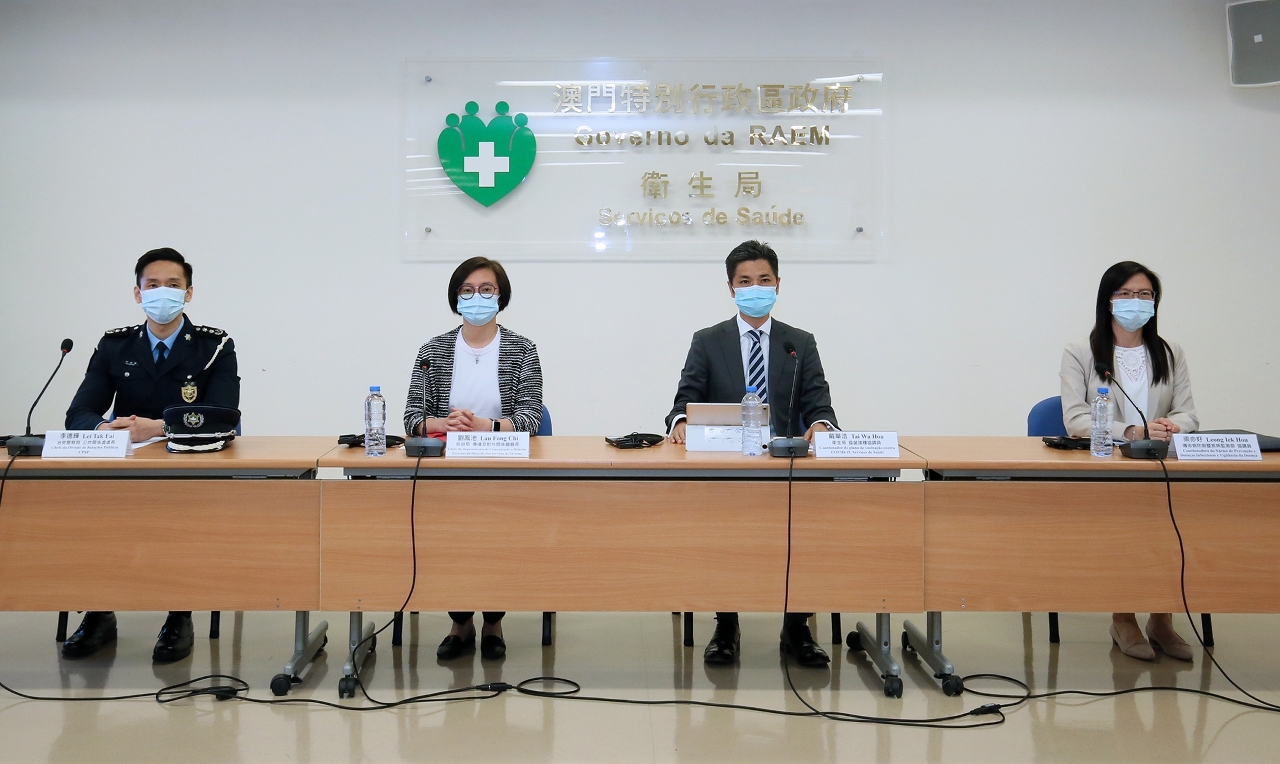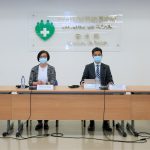 Regular press conference is held by the Novel Coronavirus Response and Coordination Centre.
Regular press conference is held by the Novel Coronavirus Response and Coordination Centre.
Macao’s COVID-19 vaccination programme will – from 10am on Friday (9 April) – accept registrations either from non-locals studying in Macao tertiary education institutions, and those people that are not holders of Macao ID document but are permitted to stay in Macao.
People from the two newly-included groups can make an appointment online in order to receive either of two vaccines currently available in Macao. They are the inactivated-type vaccine produced by Sinopharm, which will be available to them from Saturday (10 April); and the ‘mRNA-based’ vaccine developed by BioNTech, which will be available from Monday (12 April).
The latest stage of the local vaccination programme was announced during the regular press conference held by the Novel Coronavirus Response and Coordination Centre on Wednesday (7 April).
To be eligible for vaccination, those non-residents with authorisation to stay in Macao, must have been in Macao for more than half of the past six months. That group of Macao inhabitants includes: family members of non-resident workers; consular staff; and those whose non-resident worker ID was nullified but who for now remain in Macao.
They should provide a certificate issued by the Public Security Police Force proving their right to stay in Macao, in order to be eligible for inoculation in Macao. Further guidance will be made available soon, listing eligibility requirements for vaccination, in relation to the relevant groups of Macao inhabitants.
Non-locals studying in Macao tertiary education institutions will be exempted from payment for the jabs; while people categorised in the other newly-eligible group will be charged 250 patacas per jab.
A vaccination appointment can be made via https://eservice.ssm.gov.mo/covidvacbook. For details of the vaccination programme, please refer to a dedicated webpage: https://www.ssm.gov.mo/apps1/covid19vaccine/en.aspx.
As of 4pm on Wednesday, a total of 58,676 COVID-19 jabs had been administered in Macao. Of the aggregate, 41,117 people had received a first dose and 17,559 had each received two doses of vaccine. Among the 17,559 having completed vaccination, 16,442 had received the Sinopharm vaccine while the other 1,117 had the BioNTech jab.
As of that time, an aggregate of 108,009 people had been able to confirm an appointment for initial vaccination.
During the 24 hours from 4pm on Tuesday (6 April) to 4pm on Wednesday (7 April), the Health Bureau had received 10 notifications about reactions related to vaccination. There were: zero cases involving a serious adverse event; and 10 cases involving a minor event.
Since the beginning of the vaccination programme, there had been 232 notifications about reaction to vaccination, including one case of a serious adverse event; and 231 cases of a minor event.
On Wednesday evening, Macao confirmed a new imported case of COVID-19, taking the tally recorded in Macao – since the beginning of the COVID-19 alert in 2020 – to 49.
The latest case involved a 23-year-old male Macao ID holder, who had been studying in Portugal. He stated he had not previously been diagnosed with COVID-19 infection prior to his trip to Macao. He also stated he had not received any vaccination against COVID-19.
The patient is now being kept in isolation for treatment at Conde S. Januário Hospital. He had not complained any illness and is described as showing mild clinical signs of infection relating to the novel coronavirus.
The now-patient took Air France flight AF1025 on 4 April from Lisbon, Portugal, to Paris-Charles de Gaulle Airport, in France. On 6 April he took a connecting flight, EVA Air BR088 to Taipei, Taiwan; and then EVA Air BR801 from Taipei to Macao on 7 April.


